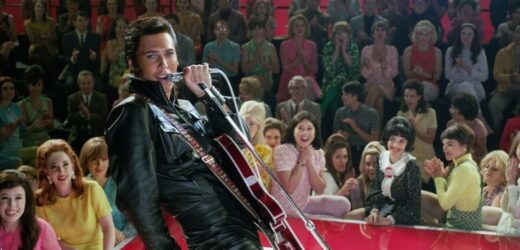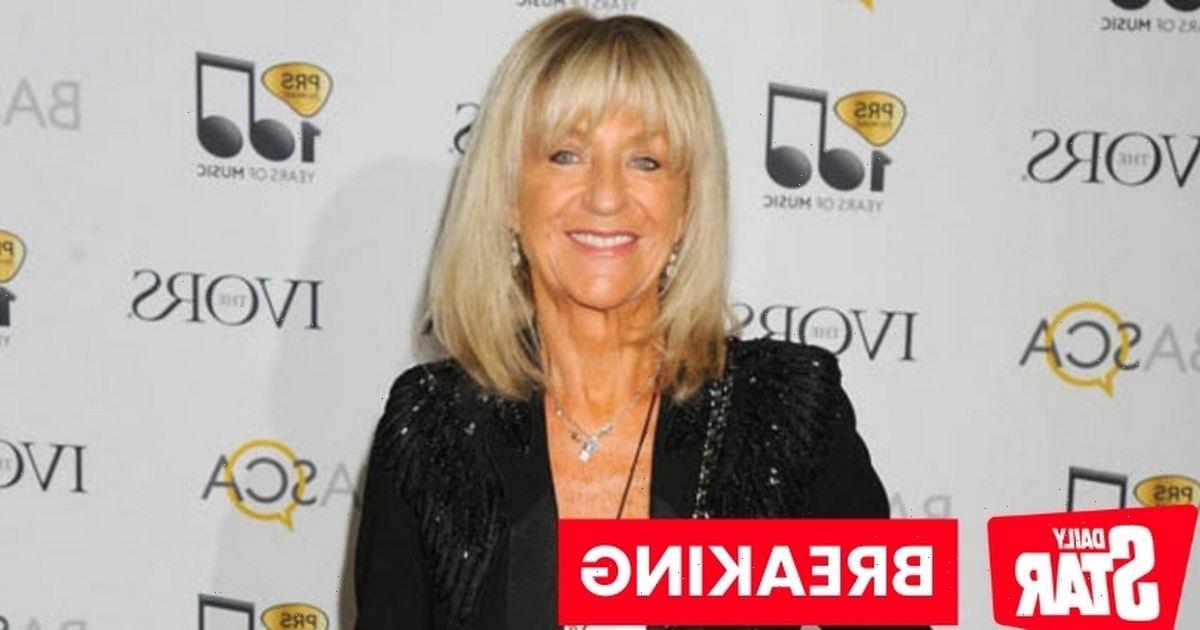Word of Austin Butler’s steadfast work ethic was already becoming known in Hollywood before the 31-year-old actor played Elvis Presley. But in taking on the part of a lifetime, in Baz Lurhmann’s titular film, the actor truly proved his dedication beyond any expectation. Butler may have moved on to his next projects (among them, the Tom Hanks and Steven Spielberg exec-produced Masters of the Air, and Dune: Part Two, currently in production) but he still relishes talking about playing Elvis and describes how he aimed to capture both the physical depiction and the soul of the man.
DEADLINE: You spent more than two years getting into character for this, and it’s been a few months now since Elvis came out. Have you been able to shake him or is there something that’s stayed with you from playing Elvis?
Related Story
'SNL': Steve Martin & Martin Short, 'Elvis' Star Austin Butler To Host Final Shows Of The Year
AUSTIN BUTLER: I think there will always be. It was such a huge chunk of my life that I was doing nothing else, so there are certain parts of it which will be infused in my DNA. But I think because I’ve been playing other roles now, I’m able to give myself over to the obsession of each role. And so that, in a way, has been my process in somewhat being able to shed it.
DEADLINE: You spoke previously about wanting to humanize Elvis. What do you think this film adds to his legacy?
BUTLER: Well, I know in moments when I met Lisa Marie or I met Priscilla, Elvis ceased to be this icon. In those moments you realize so deeply how he is a father, and he is a husband and a son. Even though Priscilla and Lisa Marie weren’t involved in the creation of the film, or weren’t reading the scripts or anything, I felt this deep duty to them, because of the fact that he was so human to them. So, I know that was one thing that was at the core of it for me, as far as legacy goes. When I think about it, just on the level of family, that’s something that I’ve been very proud of, and just so grateful for, because I had no idea how they were going to respond to it. The fact that they were moved, that really just meant so much to me.
DEADLINE: How did you overcome the fear and trepidation of playing such an iconic person?
BUTLER: Well, as you say that, I just closed my eyes and I think back to the fear that I actually felt. It was so intense. One, I was very fortunate to have a lot of time, so the fear changed with my process. There were times where I was trying one thing, and then I would try a different technique, or this or that, or focus on something different.
And at first, it just seems like there’s almost an impossible amount of information out there, and images and sounds, recordings. Then once I went through every photo that I could find and every book that I could read and every bit of footage, or whatever I could get my hands on, then I felt this fear that I couldn’t infuse it all into me or somehow hold it all at once. It felt like there were a million spinning plates that I was trying to spin, so that was terrifying.
But then at a certain point, because I had so much time, there were things that I just didn’t have to think about, because I practiced them so many times, maybe physical things, or I just watched something so much that it started to feel like it was becoming a part of me, and I wasn’t having to consciously think of things.
The real fear is that you’ll either focus so much on the specific external things, like the way that he moves or speaks, that you’ll then lose the soul. But if you don’t have those meticulous things, then you don’t have the individual. And so it had to be a merging of those two. That was a bit overwhelming at first, but once I had the amount of time, and then I was able to just be there, and then focus on those things of, “What is he feeling right now? Where is he, in this moment?” It’s got to feel as though it’s happening for the first time. So once all those things were inside, then I wasn’t having to really think about that on set. Then the fear gets sort of transmuted into an energy. He was also feeling fear when he was on stage, but now it can be focused into how to affect the audience, or how I feel about what my relationship is to the colonel, in this moment. Or it becomes about the laser focus of what’s happening in that very moment.
And then the fear sort of subsides. And then I go home, and then I wake up at four in the morning with more fear, as I think about the next day of filming [chuckles]. So it’s kind of, it goes away in the moment, but it never goes away always, or completely.
DEADLINE: Can you still remember the initial challenges of getting his voice right?
BUTLER: Yeah, I know that I’ve spoken about it before, but it was when I listened to every one of his interviews. There’s this great archive of every one of his interviews, and telephone recordings. You can sort of trace his voice, and you realize that it’s not just one voice; the voice changed a lot over the years. I knew that we were going to be filming out of sequence, as well. So, it wasn’t just clicking into this one era or something, so that was a challenge. Because I knew that one day we were going to be filming in 1974 and the next day we would be in ‘56. And so, I had to get as specific as I could about each one of those voices of his.
The particular challenge with Elvis, especially, is the fact that so many people have their version of his voice, and then there’s this sort of cultural or societal idea of what Elvis’ voice is, of this impersonation. So for me, it was kind of wiping my memory of any one of those voices I had ever heard, and then going to the man himself and going, “OK, what does his voice actually sound like?” And then I would sort of let my curiosity lead me. I just became obsessed with the way he said one word, and then the entire day, I would just spend sort of figuring out the exact lilt and rhythm of the way that he said a certain word or something. But thankfully, I had a year and a half before we started shooting. The voice was the thing that often I would wake up in the morning and have this just intense fear that I wasn’t going to be able to capture his voice somehow. And so, the first thing I would do is put on a recording of him. That was often the thing that woke me up in the morning.
DEADLINE: When you’re working with someone as idiosyncratic, as Baz Luhrmann as your director, what kind of glimpses into his mind do you get when you’re on set together?
BUTLER: Baz and I have spent so much time together now. He’s a guy who doesn’t have a demarcation between his art and his life in a way. That is really amazing energy to be around, because he has this beautiful flow between his life and whatever he’s creating. So, whether we were at dinner or we were on set filming there, we were constantly in it together. He’s incredibly focused and detailed, but then loves spontaneity and trusts that if we’ve done all the homework, that when we show up, we could throw our original plan to the side and now dig into something that we’ve never thought of before. That can be scary at first because when you’ve prepared a lot, you want to hold onto whatever the homework was. But that’s something that he taught me, is that if you really do all the work, then you can show up and change everything and you’ll capture something that you didn’t expect before. He’s really amazing. He curated so many experiences for me that allowed me to really just be immersed in it, and I’m so grateful to him for that.
DEADLINE: What will you remember about playing Elvis, what have you taken from him?
BUTLER: There’s a couple things that come to my mind, I’ve sort of said before that my relationship to fear has changed. Partly because Elvis was a shy child and he had stage fright, and yet he went out and did what he did. Through stepping into his shoes, I felt an immense amount of fear, but then was able to see it through his eyes, and then go and then work through these things that I didn’t think that may be possible for me.
I also wasn’t a dancer before; I wasn’t a singer before. There’s a sort of liberation that I felt in it. It’s sort of like anytime that you stretch yourself out of your comfort zone, you suddenly feel like a little freer in the world. Elvis gave me that gift of expanding my sense of comfort in certain areas.
Then on the flip side of it, experiencing the end—I get emotional talking about this—experiencing the end of his life, and knowing the details so intimately of everything that led to that point, allowed me the ability to feel like I’m looking back on my own life in retrospect, and changed my own priorities and then I almost get to do it again. Especially when I’m dealing with being in a similar industry and that sort of thing, it’s allowed me to really appreciate the things that I’m now getting to experience in my life, even just being with my family or anything like that. Because there’s a lot of loneliness in Elvis’ life. And there were people who took advantage of him and there was so much tragedy. So now I feel like I’m so much more aware of those things. In a way, he’s protecting me from certain pitfalls and things, so I owe him for that as well.
Must Read Stories
Amazon’s Jennifer Salke Adds MGM Oversight; Chris Brearton To Lead MGM+ & MGM Alternative TV
Ang Lee Sets His Son To Star As Bruce Lee In Martial Arts Epic At Sony’s 3000 Pictures
New Boss Chris Licht Says Global Layoffs Underway Amid Cost-Cutting At WB Discovery
Frank Sinatra Stage Musical In Works With Kathleen Marshall & ‘Diana’s Joe DiPietro
Read More About:
Source: Read Full Article









